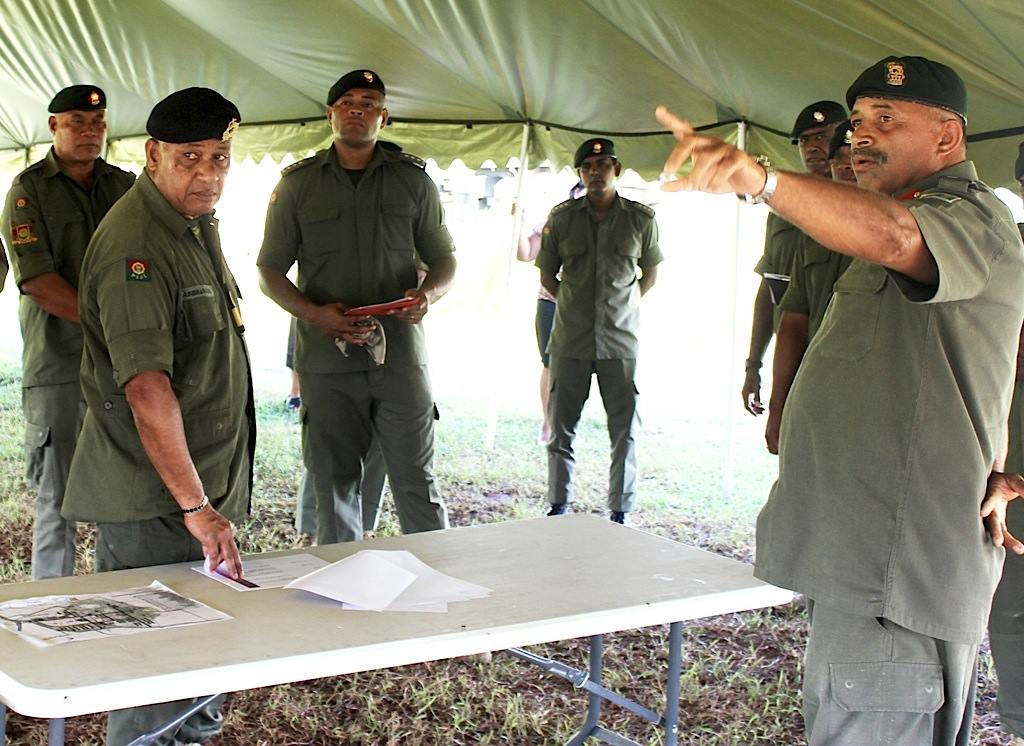 Improved relations between Australia and Fiji would benefit Canberra, Suva, and the region. Such ties would bolster Australia’s regional leadership credentials, assist Fiji’s dealings with its largest trading partner and donor, and prevent further collateral-damage to the Pacific Islands Forum (PIF).
Improved relations between Australia and Fiji would benefit Canberra, Suva, and the region. Such ties would bolster Australia’s regional leadership credentials, assist Fiji’s dealings with its largest trading partner and donor, and prevent further collateral-damage to the Pacific Islands Forum (PIF).
According to the Fiji Ministry of Information, Prime Minister, Commodore Voreqe ‘Frank’ Bainimarama, will step down as head of the Fiji military today. Australia should respond by lifting sanctions right away.
In 2012, Graeme Dobell noted that the debate between pro-sanctions ‘hawks’ and pro-engagement ‘doves’ had become an arid argument. The strong points on each side of the debate, friction between key personalities, and mutual distrust had created an impasse. Those who suggested continuing isolation was only deepening regime intransigence and harming Canberra’s influence and interests were sometimes branded ‘appeasers’ by others who argued abandoning fundamental regional values would have significant practical as well as moral repercussions.
That stalemate is easing thanks, firstly, to the circuit-breaker provided by the election of a new Australian government committed to trying to normalise relations (as one of just eight pre-election foreign policy priorities) and, secondly, to Suva’s concrete steps towards proper elections. But while that combination of factors means neither side had to capitulate, and allows each to move on, Richard Herr is probably right to warn the diplomatic breakthrough is as fragile as it is welcome.
Writing about the recent PIF Ministerial Contact Group visit to Suva, including Foreign Minister Julie Bishop’s apparently successful Valentine’s Day meeting with Bainimarama, Elke Larsen from the CSIS calls reengagement ‘the right policy at the right time’ but cautions that regional powers need to ‘keep up pressure to ensure elections are genuinely free and fair’. I’d normally agree it’s sensible to hold some policy levers in reserve and to make any concessions progressively, but in this case I’d suggest that we’re presented with the opportunity and the need to be a bit more audacious than that.
That’s partly because retaining travel sanctions in principle serves only as an irritant and an insult when they’ve already ended in practice (as Dobell notes, only one out of the last 56 requests for compassionate, humanitarian or national interest exemptions has been rejected—and that on technical grounds). Whereas Bishop reportedly told Bainimarama the sanctions policy was under review and the next opportunity to take it to cabinet would be after he’s stepped down as army chief, setting-aside any conditionalities was a key ingredient in the success of her meeting with him. We’re likely to get further by trying to totally re-set the relationship than if we seem tricky or inclined to haggle over trading concessions on frustrations such as the non-accreditation of our High Commissioner designate. If things go badly, new measures might be preferable to reviving the old ones that helped delegitimise the coup but did little to change Fiji’s behaviour. Let’s instead try to avoid reaching that point by signalling that Bainimarama’s willingness to do the right thing will be rewarded.
Rowan Callick suggests Bishop’s highlighting the prospect of renewed defence ties was probably crucial to demonstrate that Canberra’s ready to go forward in partnership with Suva. But, as Anthony Bergin suggests, it’ll be useful to look beyond just the barracks for areas of mutually beneficial security cooperation. ASPI identifies opportunities in areas such as maritime security, enhanced peacekeeping cooperation, disaster resilience, and law enforcement and justice.
Once Bainimarama steps down as military chief, we’ll have little to lose and much to gain by positively reinforcing that move. A leap of faith now would entail some risk, but not acting carries the greater risk that we’ll miss building sway we might need later. Moving forward boldly and in good faith would increase the likelihood of further positive outcomes eventuating. If things go badly, it wouldn’t leave ‘egg on our face’, rather we would have strengthened our moral and practical sway. It’s time to move from the principle of ‘first, do no harm’ to ‘seize the day.’
Karl Claxton is an analyst at ASPI. Image courtesy of the Fijian Government.

